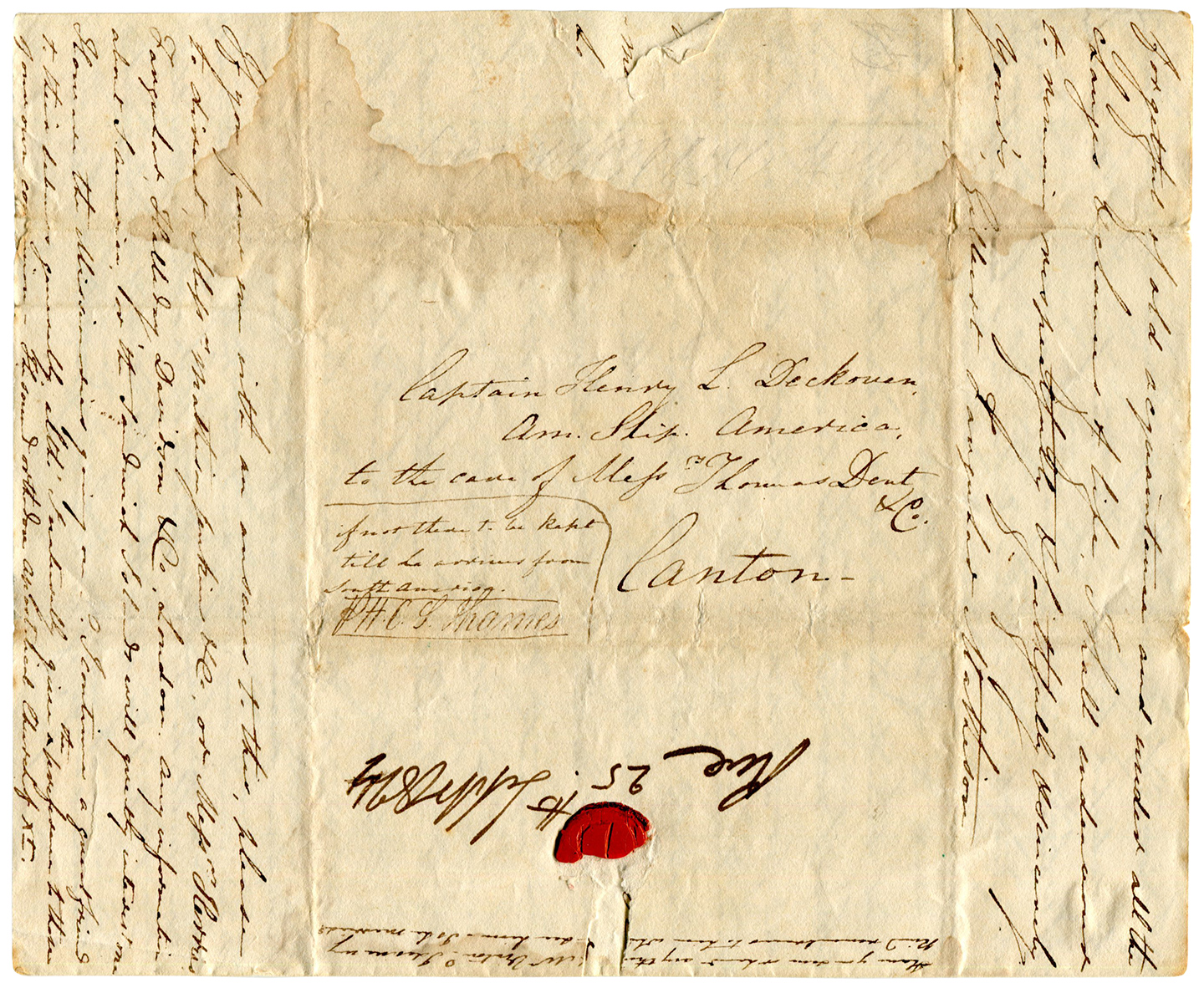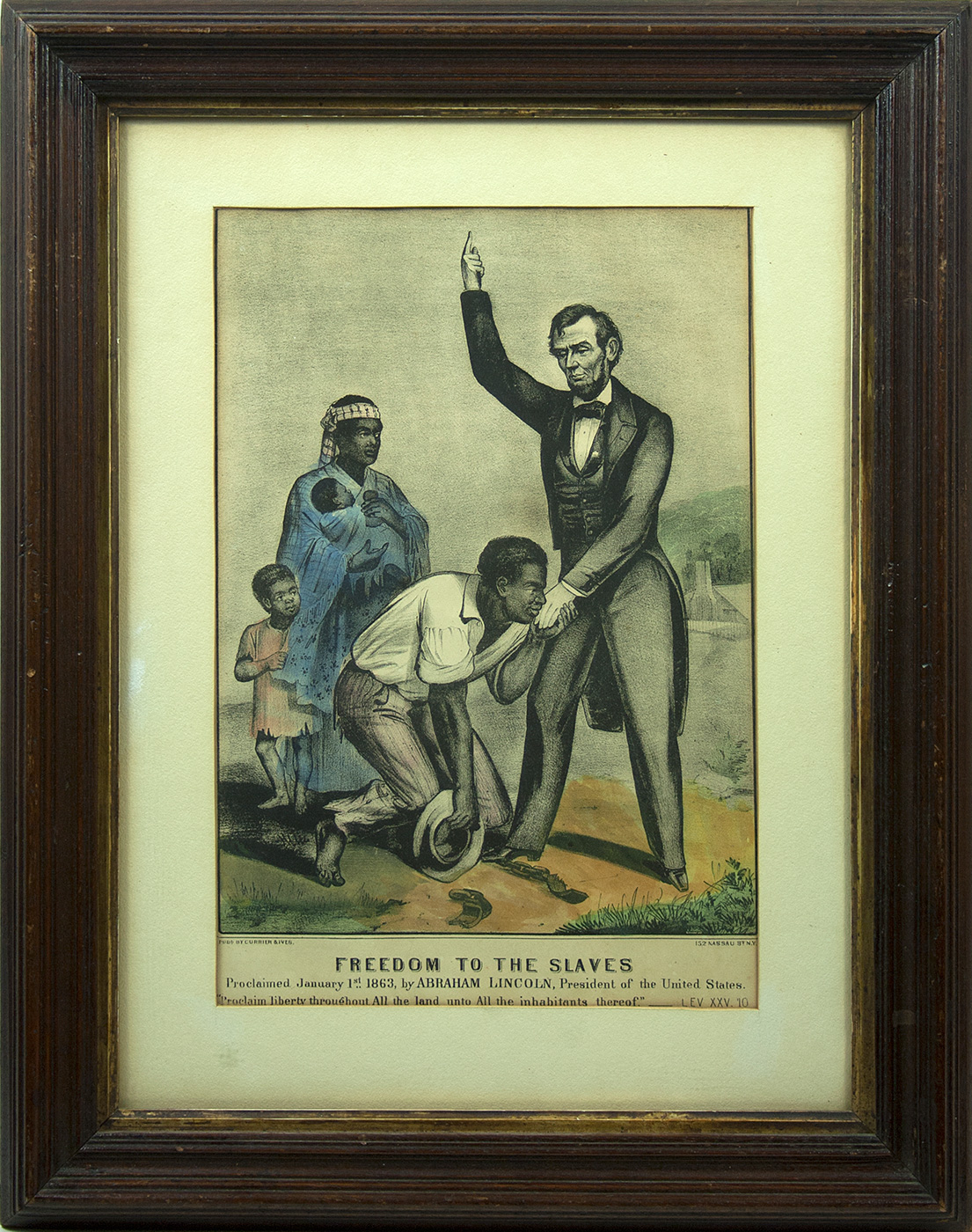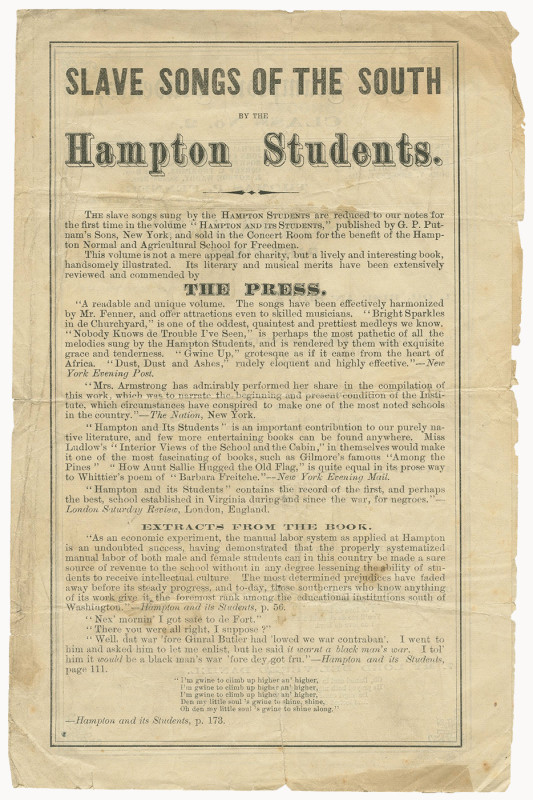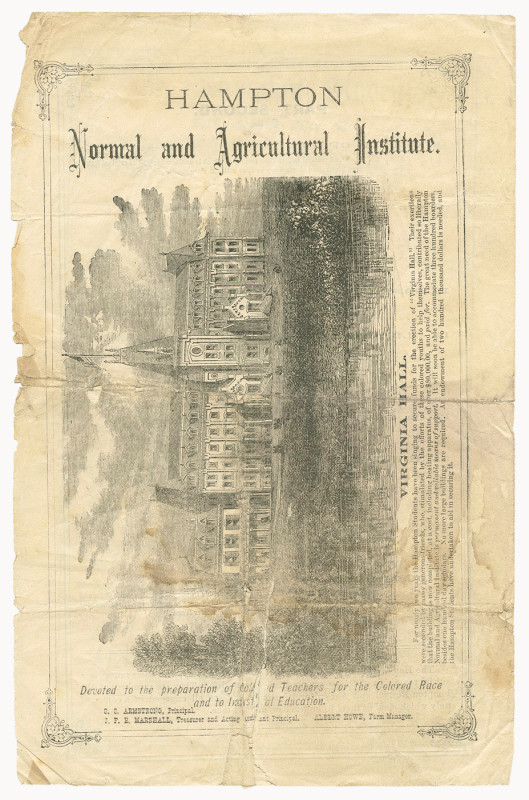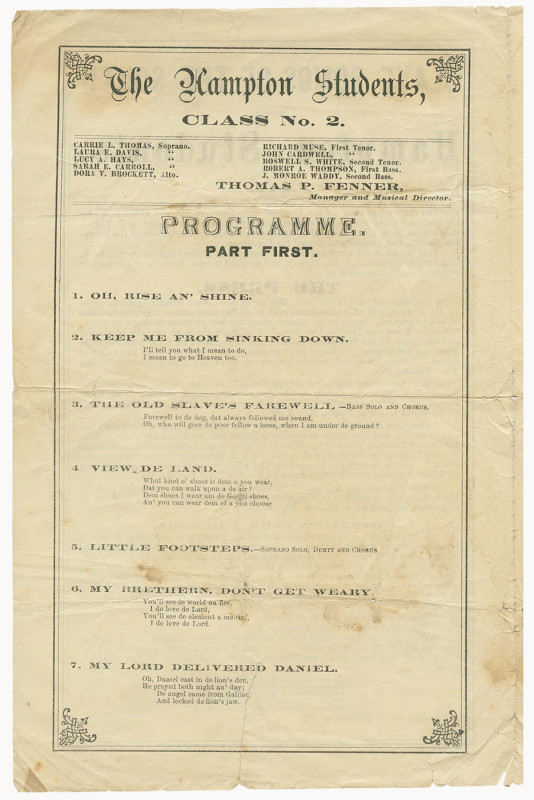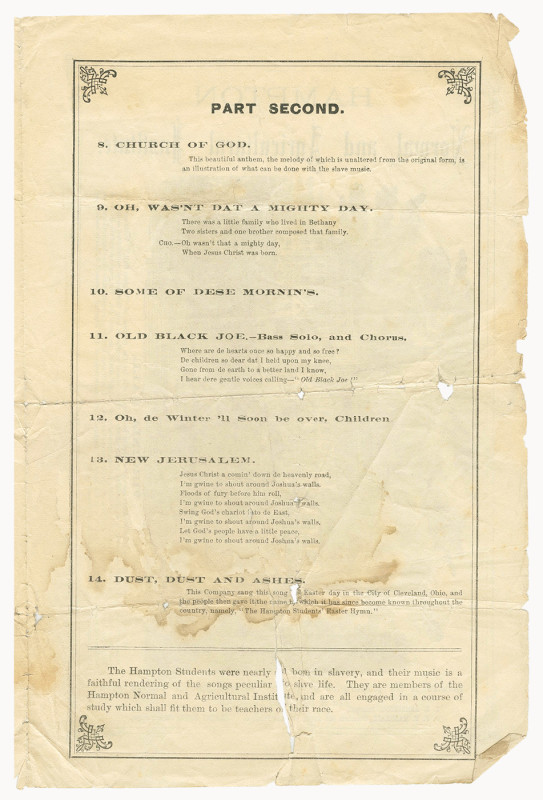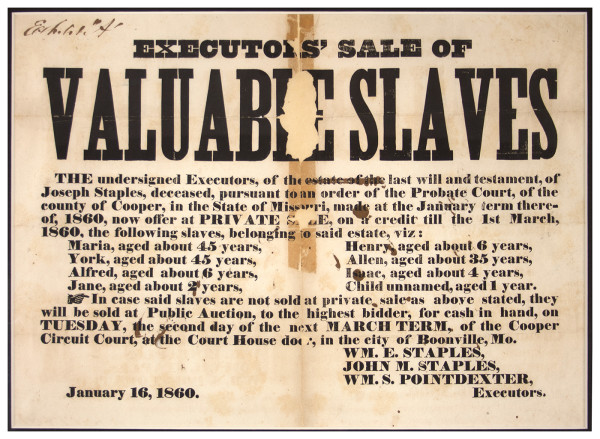Important letter by abolitionist Gilbert Farquhar Mathieson on the possibility of emancipation in Jamaica and other British possessions in the Carribiean
“… unless we resign the islands to the Negroes entirely, it is impossible to give them their liberty at any definite period, consistently with the safety of the whites, and the happiness of the whole Community…“
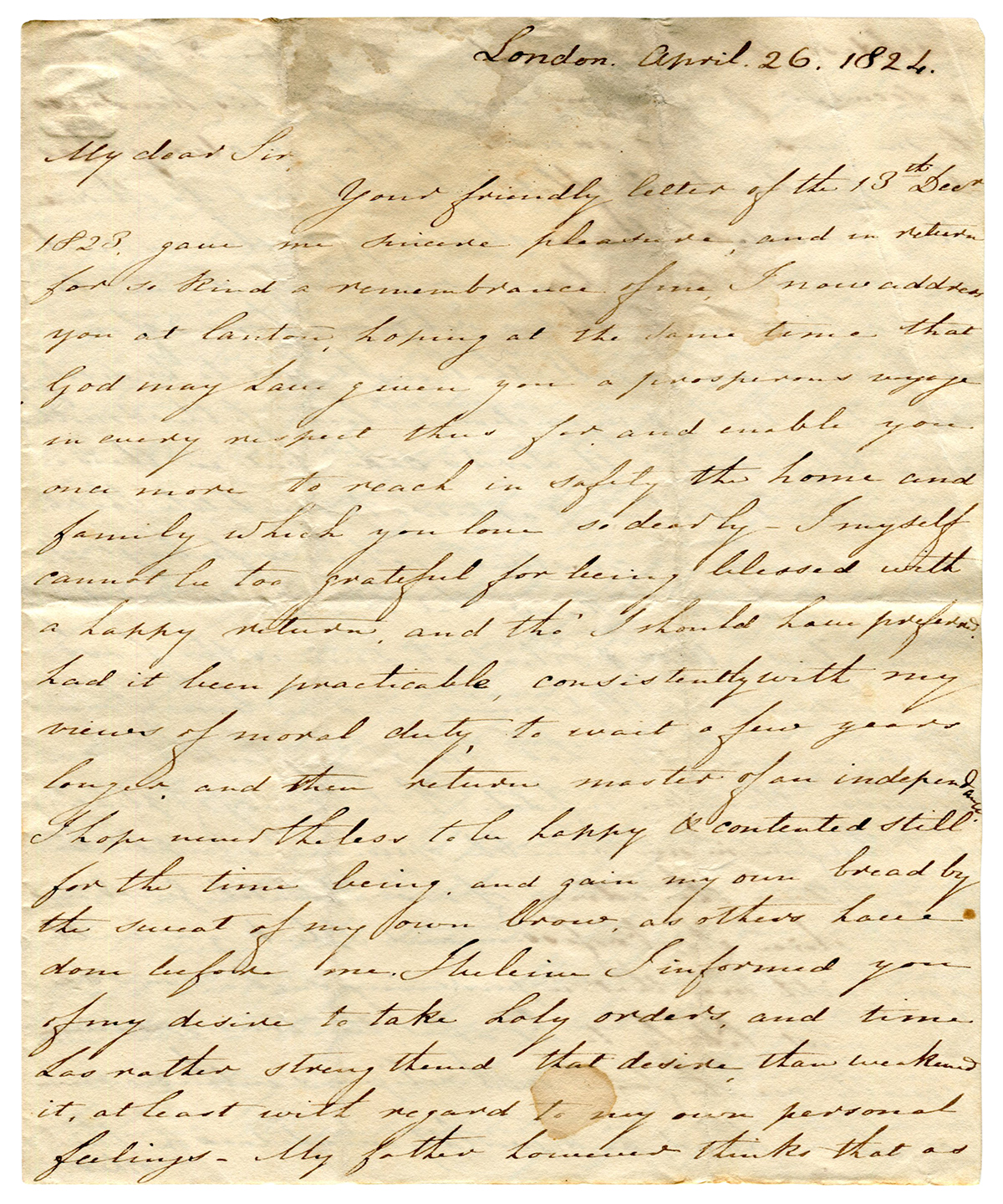 (Abolition and Slavery) Gilbert Farquhar MATHISON (MATHIESON, c. 1803 – 1854) British author, traveler, abolitionist, served as private secretary to the Chancellor of the Exchequer, and as Secretary to the Mint beginning in 1828. Mathison is also the author of Narrative of a Visit to Brazil, Chile, Peru and the Sandwich Islands, during the years 1821 and 1822 (1825) describing his journey to Macao, China, where he worked for his cousin Walter Stevenson Davidson in the opium trade.
(Abolition and Slavery) Gilbert Farquhar MATHISON (MATHIESON, c. 1803 – 1854) British author, traveler, abolitionist, served as private secretary to the Chancellor of the Exchequer, and as Secretary to the Mint beginning in 1828. Mathison is also the author of Narrative of a Visit to Brazil, Chile, Peru and the Sandwich Islands, during the years 1821 and 1822 (1825) describing his journey to Macao, China, where he worked for his cousin Walter Stevenson Davidson in the opium trade.
Fine content Autograph Letter Signed “Gilbert Farquhar Mathieson“, 11pp., London, 26 April 1824, a lengthy communication to Captain Henry L. DeKoven* aboard the Ship America docked in Canton, China, regarding his intentions to join the clergy, his current course of legal studies, and the necessity of emancipating the slaves in the British colonies in the West Indies.
A young Mathison, recently returned from a world tour that brought him to South America, Hawaii and China, writes on his prospects and expectations for his life, and ponders becoming a clergyman. He muses: “… I may or may not make a trip to Jamaica some day, according to circumstances, and if so shall hardly fail to take America en route…” A mutual associate, Mathison notes, “is now there in Kingston in my father’s employ,” but thinks that a position might open up for himself as his father’s current man was in “very low spirits and appears terribly apprehensive about catching the fever…”
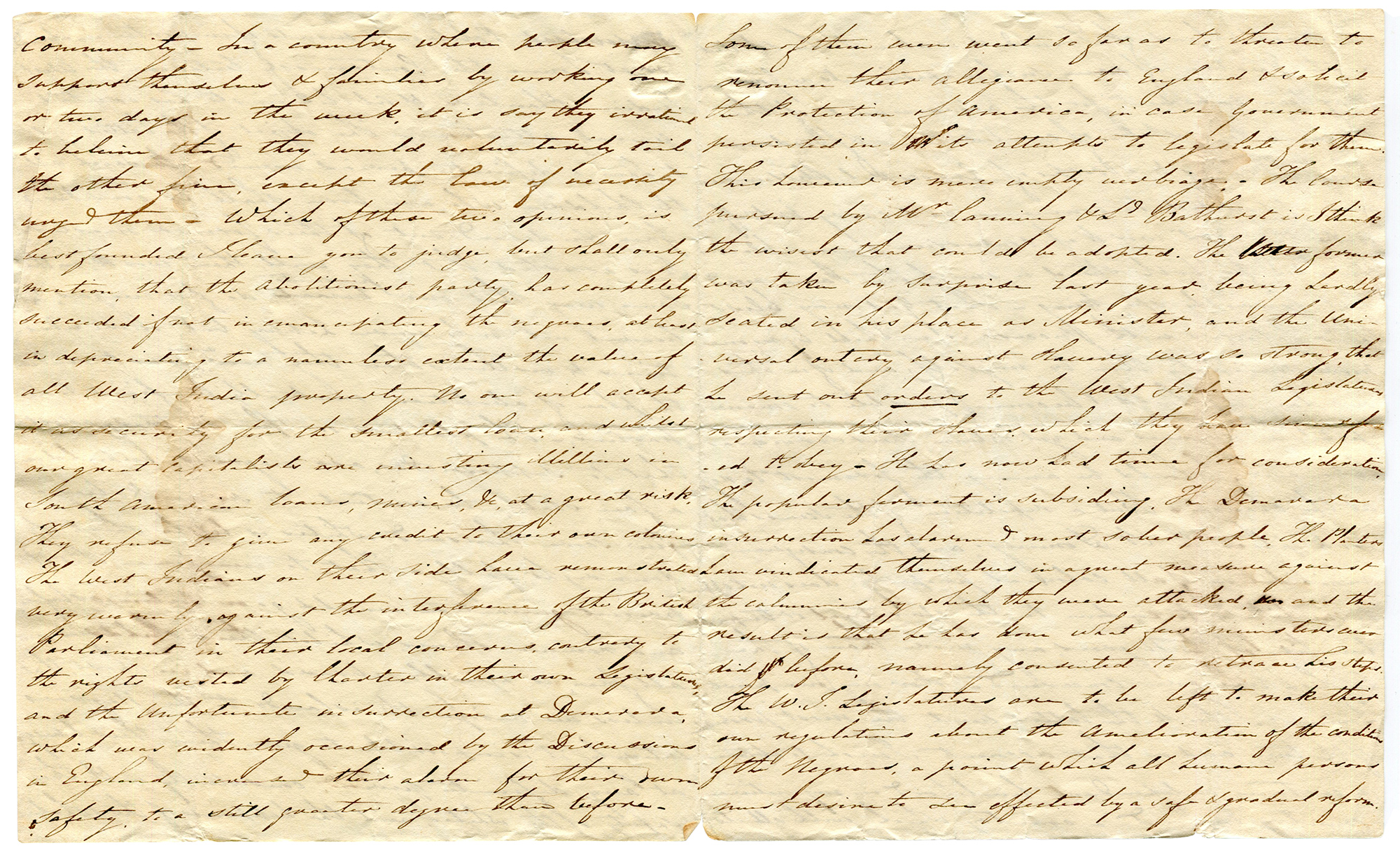 Mathison then discusses the prospects for ending slavery in the British colonies at some length: “You are not likely to have heard much in South America, about the question of emancipating the Slaves in the West Indies that has been agitated by Mr. Wilberforce & his friends in Parliament of late— It has given rise to much paper warfare, and in the general dearth of all Political events of importance abroad or at home, the controversy between the West Indian Planters & abolitionists has excited general attention— The object of the latter is to leave a definite period named after which all the Children who are born shall be considered free & independent of their former masters. It is asserted that they will then work in the same way that our peasants do for wages, & become not only more happy but more industrious & virtuous than they now are so as to render the plan of abolition mutually beneficial to all parties.— The Planters on the contrary attest, that to suppose 800,000 negroes, would in a free state, be content of serve & obey a few score thousand whites is little short of downright folly— That to imagine that the present generation would go on toiling as before and remain slaves, whilst their children were all free, is equally absurd, and in short, that unless we resign the islands to the Negroes entirely, it is impossible to give them their liberty at any definite period, consistently with the safety of the whites, and the happiness of the whole Community— In a country where people may support themselves & families by working one or two days in the week, it is say they irrational to believe that they would voluntarily toil the other five, except the hour of necessity waged them— Which of these two opinions is best founded I have you to judge, but shall only mention, that the Abolitionist party has completely succeeded if not in emancipating the negroes, at least in depreciating to a nameless[?] extent the value of all West India property. No one will accept it as security for the smallest loan, and whilst our great capitalists are investing Millions in South American loans, mines &c., at a great risk, they neglect to give any credit to their own colonies. The West Indians on their side remonstrated very waringly against the interference of the British Parliament in their local concerns… Some of their men went so far as to threaten to renounce their allegiance to England & so to at the Protection of America, in case Government persisted in its attempts to legislate for them… The course pursued by Mr. Canning & Ld. Bathurst is I think the wisest that could be adopted… [Lord Bathurst] in his place as Minister… the universal outcry against slavery was so strong, that he sent out orders to the West Indian Legislatures respecting their slaves which they have since refused to obey… The small island of Trinidad is about to be selected as the Theatre of such experiments as Government may deem expedient for the advancement of the Negroes to a state of Civilisation & freedom… the administration of James Monroe in America is not more satisfactory to his constituents than that of George Canning, at the present moment to the Citizens of Great Britian. He has upon several occasions taken the opportunity of declaring his respect & good will towards your Government & country. I sincerely trust that good will may long continue to subsist between our two Governments, and that whenever war is again necessary, we may cooperate as allies & brothers, rather than as enemies—…”
Mathison then discusses the prospects for ending slavery in the British colonies at some length: “You are not likely to have heard much in South America, about the question of emancipating the Slaves in the West Indies that has been agitated by Mr. Wilberforce & his friends in Parliament of late— It has given rise to much paper warfare, and in the general dearth of all Political events of importance abroad or at home, the controversy between the West Indian Planters & abolitionists has excited general attention— The object of the latter is to leave a definite period named after which all the Children who are born shall be considered free & independent of their former masters. It is asserted that they will then work in the same way that our peasants do for wages, & become not only more happy but more industrious & virtuous than they now are so as to render the plan of abolition mutually beneficial to all parties.— The Planters on the contrary attest, that to suppose 800,000 negroes, would in a free state, be content of serve & obey a few score thousand whites is little short of downright folly— That to imagine that the present generation would go on toiling as before and remain slaves, whilst their children were all free, is equally absurd, and in short, that unless we resign the islands to the Negroes entirely, it is impossible to give them their liberty at any definite period, consistently with the safety of the whites, and the happiness of the whole Community— In a country where people may support themselves & families by working one or two days in the week, it is say they irrational to believe that they would voluntarily toil the other five, except the hour of necessity waged them— Which of these two opinions is best founded I have you to judge, but shall only mention, that the Abolitionist party has completely succeeded if not in emancipating the negroes, at least in depreciating to a nameless[?] extent the value of all West India property. No one will accept it as security for the smallest loan, and whilst our great capitalists are investing Millions in South American loans, mines &c., at a great risk, they neglect to give any credit to their own colonies. The West Indians on their side remonstrated very waringly against the interference of the British Parliament in their local concerns… Some of their men went so far as to threaten to renounce their allegiance to England & so to at the Protection of America, in case Government persisted in its attempts to legislate for them… The course pursued by Mr. Canning & Ld. Bathurst is I think the wisest that could be adopted… [Lord Bathurst] in his place as Minister… the universal outcry against slavery was so strong, that he sent out orders to the West Indian Legislatures respecting their slaves which they have since refused to obey… The small island of Trinidad is about to be selected as the Theatre of such experiments as Government may deem expedient for the advancement of the Negroes to a state of Civilisation & freedom… the administration of James Monroe in America is not more satisfactory to his constituents than that of George Canning, at the present moment to the Citizens of Great Britian. He has upon several occasions taken the opportunity of declaring his respect & good will towards your Government & country. I sincerely trust that good will may long continue to subsist between our two Governments, and that whenever war is again necessary, we may cooperate as allies & brothers, rather than as enemies—…”
His father, Gilbert Mathison, died in 1828, and his inheritance included a number of slaves. When Great Britain ordered the emancipation of colonial slaves in the 1830s, Mathison was assessed with ownership of twenty-five individuals.
Light creases and expected mailing folds, light toning and soiling, else very good.
(EXA 5935) SOLD
________
* Henry Louis DeKoven (1784-1804) Middletown, Connecticut shipping magnate active in the China trade during the early 19th century, a merchant and banker, and an early land holder in what would later become Chicago.
